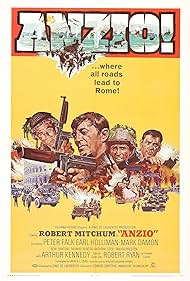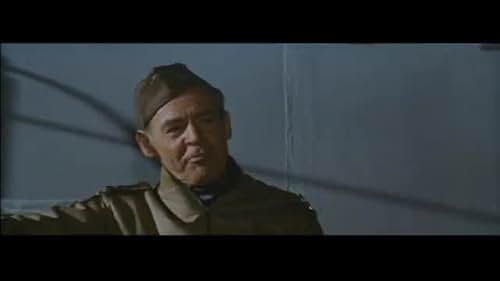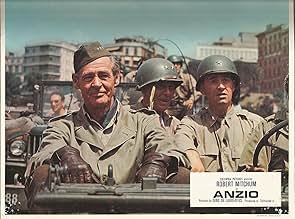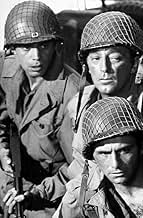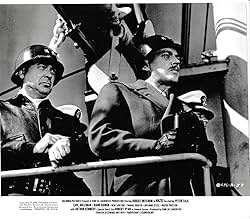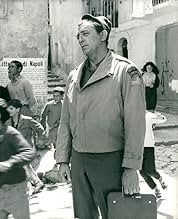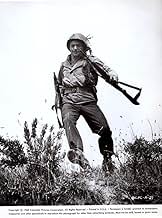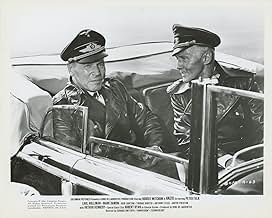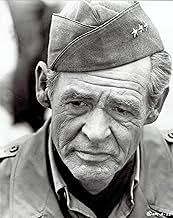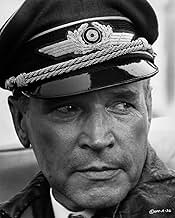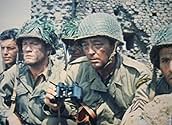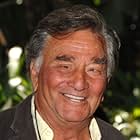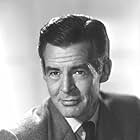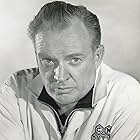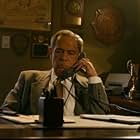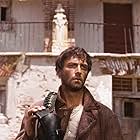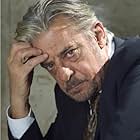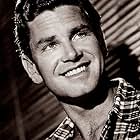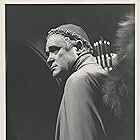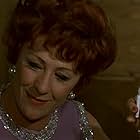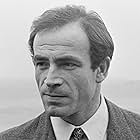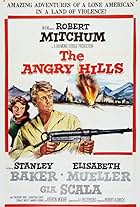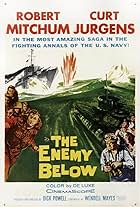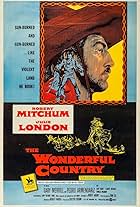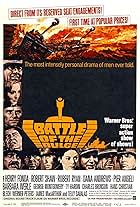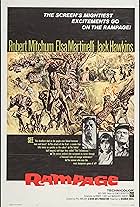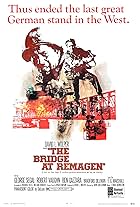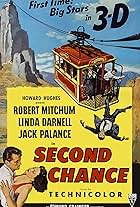Un corrispondente di guerra è testimone degli errori del Comando Alleato durante lo sbarco di Anzio nel 1943. I generali sono tutti individuabili, ma hanno un nome in codiceche evita loro di... Leggi tuttoUn corrispondente di guerra è testimone degli errori del Comando Alleato durante lo sbarco di Anzio nel 1943. I generali sono tutti individuabili, ma hanno un nome in codiceche evita loro di essere accusati e processati.Un corrispondente di guerra è testimone degli errori del Comando Alleato durante lo sbarco di Anzio nel 1943. I generali sono tutti individuabili, ma hanno un nome in codiceche evita loro di essere accusati e processati.
Trama
Lo sapevi?
- QuizPeter Falk in his 2006 autobiography "Just One More Thing: Stories of My Life" stated that he didn't like the script for this film, finding it hackneyed and full of cliché; he wanted to leave the film for these reasons. However, producer Dino De Laurentiis encouraged him to stay by giving him film-poster name-above-the-title credit as well as choice of writer for his dialogue. Falk stayed on the picture and apparently actually wrote his own dialogue.
- BlooperToward the beginning of the film, Cpl. Jack Rabinoff (Peter Falk) is in the back of a Red Cross ambulance with three prostitutes and grabs a shoebox-sized box labeled "Hershey's Milk Chocolate Multi Pack" with a "1968 design" of the Hershey logo. One of the prostitutes reaches into the box and pulls out a "1968 design" box of Brach's Milk Chocolate Stars. In addition to the two anachronisms, Hershey's and Brach's are two separate companies.
- Citazioni
Dick Ennis: [attending to Rabinoff who went into sudden convulsions] Look, fellows, I think he can use the air more then the company, okay? Anything anybody can do?
Cpl. Jack Rabinoff: No, unless you have a band-aid.
Dick Ennis: Very funny.
Cpl. Jack Rabinoff: Oh, it's murder. The stomach, you see? A Japanese grenade ripped my insides. Got medal in there. Under tension it contracts and all hell breaks loose. I must have been tense.
Dick Ennis: Good thinking. You belong in a hospital, not in a war.
Cpl. Jack Rabinoff: Yeah, that's what they said when they sent me home.
Dick Ennis: You mean you got out, then you went to Canada and joined this outfit?
Cpl. Jack Rabinoff: That's right.
Dick Ennis: How did you get past the doctors?
Cpl. Jack Rabinoff: Lied about my age.
Dick Ennis: You gotta be crazy. Half your guts blown out and you're back here. What for?
Cpl. Jack Rabinoff: Awkward time for a interview.
Dick Ennis: You got something better to do? Why did you re-enlist?
Cpl. Jack Rabinoff: Why? Because I like it, you know. I missed it, Ennis. With all the mud and pain, these clowns giving orders, there's nothing like it. Look, a guy sells shoes for 40 years. I live more in one day, I see more and feel more. I taste more, I think more. I'm more, understand? I'm more. There's more to living than breathing. Capisce?
Dick Ennis: Capisce.
Cpl. Jack Rabinoff: You're the same way, that's right. War is part of you. You belong to it and when this one's over, you'll find another and I hope I'm with you.
- ConnessioniReferenced in The Carol Burnett Show: Nanette Fabray and Steve Lawrence (1970)
The film stars Robert Mitchum ("The Enemy Below") as Dick Ennis, a cold and cynical war correspondent that does his work on the front lines with the infantrymen. When the squad he is accompanying gets cut off behind the German lines due to an ambush, he must pick up a gun and help them fight their way back to Allied lines.
The movie has a lot going for it, right from the start. Every actor looks comfortable, especially Mitchum. Robert Mitchum has never been one of my favorite American actors, simply because he always seems to be acting despite the dimensionality of the part, Mitchum can never seem to break out of a box. Here, he looks to be having plenty of fun and seems quite natural in the role. Mark Damon ("Between Heaven and Hell") provides the necessary dramatic opposite as an infantryman who can't seem to agree with Ennis on his policies. Arthur Kennedy ("Attack and Retreat") is the exact opposite of Ennis' character as the incompetent General Lesley, who takes too much time establishing a solid beachhead and allows the Germans to launch an offensive, pinning his men down on the beach. Peter Falk ("Situation Normal, All Fouled Up"), on the other hand, is totally wasted as Corporal Rabinoff, a soldier who has become addicted to combat. Earl Holliman ("Armored Command") is the Sergeant in command of the squad, and he makes the most out of a clichéd-role by giving his character personality. Be sure to watch for Robert Ryan, Anthony Steel, Arthur Franz and Patrick Magee as Allied Generals.
There is only one big battle sequence, which expertly staged and filled with tanks, extras and big explosions. However, its effectiveness is limited because of two key flaws. Primarily, American soldiers are seen to stand up in the open and rush German machine-gun nests, only to be mowed down by overwhelming enemy fire. Secondly, there's a ridiculous scene in which Ennis and a soldier engage in a discussion about the war right in the middle of a fight, despite the fact that bullets and artillery shells are landing all around them! The final, small-scale, climactic showdown with German snipers was much more suspenseful, due to some excellent editing and great music score.
One major flaw in the film is, unfortunately, the script. It's as if "Anzio" can't decide if it wants to be a gung-ho flag-waver, or a downbeat, anti-war story. The first half the film is filled with humorous, almost slapstick scenes, although some of Mitchum's dialog hints that this is going to change and it does, in fact the focus turns around 180 degrees. Throughout the second half of the film, the action stops dead in its tracks so that the characters discuss issues of personal sacrifice, what constitutes above and beyond the call of duty, etc until it's been repeated so much that you can't stand to hear anymore. For all of this discussion, the conclusion is pretty forced. Mitchum says something along the lines of, "Men kill each other because they like to. Maybe if we all sit back and realize it, we could stop the killing and get along." That statement defines over-emphasis. Instead of being a history lesson about the real Anzio campaign, the film turns into a social commentary on Vietnam.
The on-location shooting served the proceedings well, as the film looks like sunny Italy in every frame. The scene in the Italian house looked excellent, and Dmytryk uses wide angles throughout to show off the scope of the Italian locales. The score ranges from victorious and rousing to mournful and depressing, which contributes a great deal to the mood of some important scenes such as the entry into liberated Rome and the significance of one character's death in the sniper sequence.
"Anzio" is a mixed bag, but despite a lack of focus on one theme, it manages to be entertaining and satisfying as a drama, with enough well-staged action scenes to hold it together and help obscure the muddled anti-war sentiments.
- SgtSlaughter
- 29 ott 2002
- Permalink
I più visti
- How long is Anzio?Powered by Alexa
Dettagli
- Data di uscita
- Paesi di origine
- Lingue
- Celebre anche come
- Anzio
- Luoghi delle riprese
- Royal Palace, Caserta, Campania, Italia(opening scene)
- Aziende produttrici
- Vedi altri crediti dell’azienda su IMDbPro
- Tempo di esecuzione1 ora 57 minuti
- Proporzioni
- 2.35 : 1
Contribuisci a questa pagina

